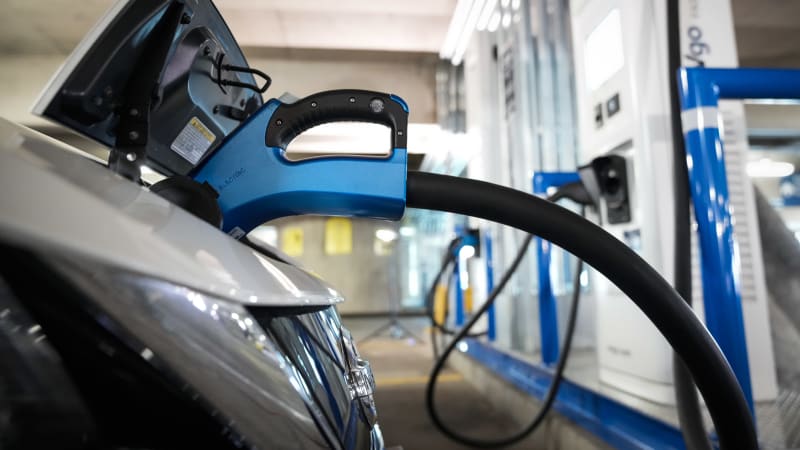Biden administration could delay decision on electric car biofuel program

NEW YORK — The Biden administration could delay deciding whether to give electric vehicle manufacturers tradable credits for using electricity generated from renewable fuels, potentially putting the effort to boost EV automakers like Tesla in political limbo, two sources familiar with the matter said.
The EPA last year recommended adding EVs to the U.S. Renewable Fuel Standard (RFS), which incentivizes oil refiners to blend biofuels. The EPA under the Biden administration is now testing the legal limits of the liquid fuel program by extending it to EVs.
Under the RFS, oil refiners must blend billions of gallons of biofuels into the nation’s fuel mix, or buy tradable credits called RINs from those that do.
Adding EVs to the program would recognize the possibility that electric vehicles could be charged using power from the grid generated by renewable natural gas from agricultural methane and U.S. landfills. The EPA has proposed granting EV manufacturers tradable credits based on the amount of renewable electricity that makes it on the grid.
It would also bring new stakeholders from the EV industry into a program that has long been a battleground for the powerful oil and corn lobbies. Renewable gas producers and EV manufacturers like Tesla have been jockeying to gain the most benefits from the new credits.
The EPA last year recommended adding EVs to the renewable fuel program when it proposed annual biofuel blending mandates from 2023 through 2025, but the administration has grown concerned that expected legal challenges to the EV measure will also block the routine quotas and are considering separating the two, the two sources said.
The annual quotas are required under a court order to be finalized in June and decoupling the two measures robs the EV effort of a definitive timeline and infuses the effort with uncertainty.
The EPA said it was considering comments on the proposed rulemaking from last year, but could not comment further.
“EPA staff are currently working to finalize the rule by the June 14 consent decree deadline,” EPA spokesperson Timothy Carroll said.
Using billions of dollars of taxpayer subsidies, transforming the nation’s car fleet to EVs is a central part of U.S. President Joe Biden’s climate change plan and any delays could hamper his goal of cutting greenhouse gas emissions and targeting 50% of new vehicle sales being electric by 2030.
The House of Representatives’ Energy and Commerce Committee this week wrote to the EPA to challenge the EV program, arguing that the RFS was intended to center on liquid transportation fuels and not to electrify transportation.
The November proposal foresaw EV manufacturers could generate as many as 600 million credits in 2024 and 1.2 billion of them by 2025.
The delay for finalizing the EV program, however, opens up the possibility that volume mandates made available for it could be shepherded toward other renewable fuel pools, including blending mandates for renewable diesel and sustainable aviation fuel (SAF).
Producers of those fuels have been lobbying the administration for months, arguing that proposed volume mandates for renewable diesel and SAF were far too low for the amount of capacity coming online to make those fuels.
Related video:



